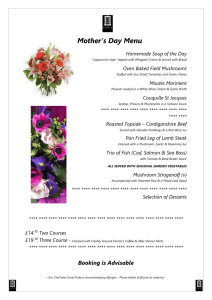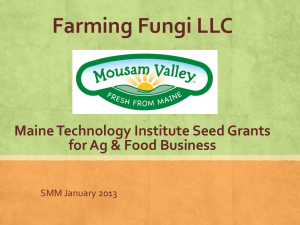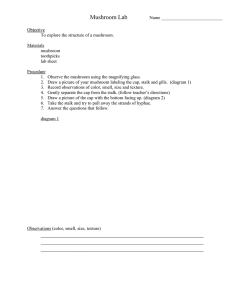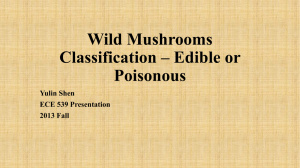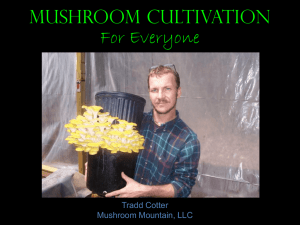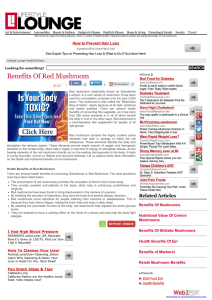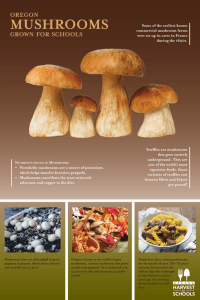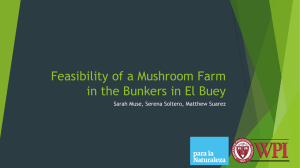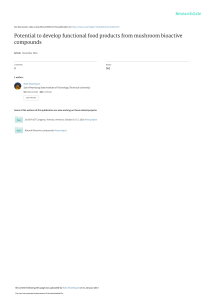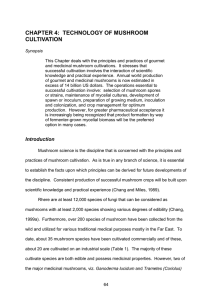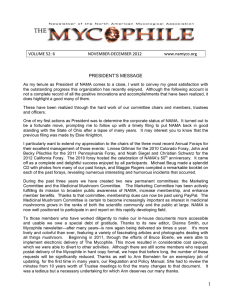View the presentation delivered by Claire Hawkins, Masters in Development Practice, TCD
advertisement
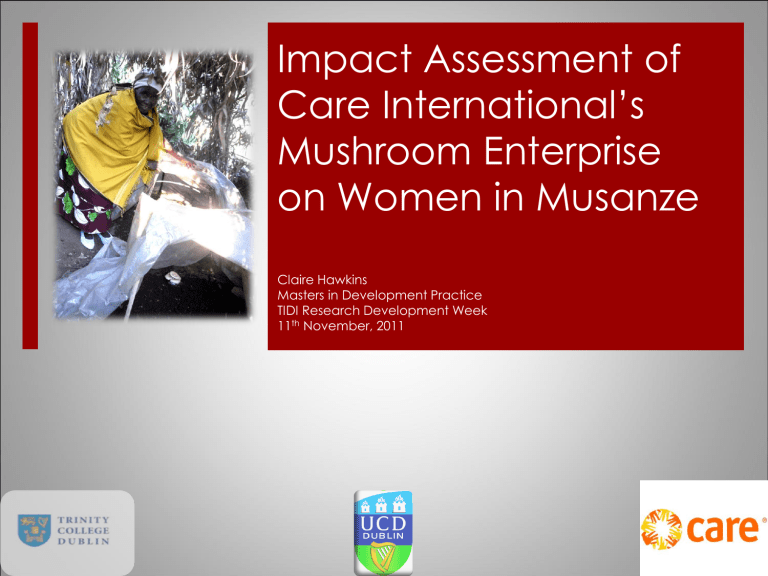
Impact Assessment of Care International’s Mushroom Enterprise on Women in Musanze Claire Hawkins Masters in Development Practice TIDI Research Development Week 11th November, 2011 Summary of Presentation 1. Background 2. Timeline of research 3. Objectives 4. Methodology 5. Key Findings 6. Implementations 7. Working with an NGO Master’s in Development Practice Year 1 Field based research placement in Rwanda for 3 months Research Topic relevant to organisation working in Rwanda Working with Care International in North Western district of Musanze Activity/Week: Survey:1st Draft Survey: 2nd Draft Survey: Final M ethodology: logistics & approved Sampling selection Pre-test survey Field visits H/H Survey Start H/H Survey End Focus Groups Data preparation Trainings Kigali Visits Presentation of findings to Care staff and partners Presentation of findings to respondent’s 1 2 3 4 5 6 7 Work Plan and Time Frame 8 x x x x x x x x x x x x x x x x x x x x x x x x x x x x x x x x x(Thursday) x(Friday) Background Care International, EEEGL and the International Gorilla Conservation Programme are in partnership on a mushroom production enterprise. By involving local communities in this programme they are addressing interrelated problems within the Virunga region of: 1. 2. 3. Poverty Conflict Environment This programme hopes to tackle economic insecurity within the community through the creation of income generation activities that allow farmers to earn income, access sustainable food and increase employment. Care’s Objective’s: 1. Engaging local women 2. Creating a gender equal workplace 3. Equal access to market 4. Empowering women with financial independence Why Mushrooms? Rwanda’s Virunga region provides a natural climate for mushroom production. The demand for mushrooms in the domestic market is high but the annual production is low. Farmers can produce kilograms of mushrooms in less than 10 days resulting in immediate access to profit. Immediate financial rewards prove the investment to be profitable and sustainable Key Issues in Mushroom Enterprise Gender inequality Poverty Unequal access to finance Lack of available training Weak support structures within the household and community for women farmers Gender Equality Support available Access to Savings and Loans Objectives Women’s Empowerment Strengths and Weaknesses Who? •Historical background •Baseline data •Programme reports Secondary Data •Care Programme officers: OVCs, VSLA and Gender Development •Mushroom Enterprise team •Mushroom Seed Suppliers •Mushroom Consultants •H/H survey with Women farmers Elite Interviews Primary Data Respondents of survey: 45 6. As a woman, how has mushroom production impacted your life? “As a woman, it has only had a positive impact. The money I earn helps resolve problems at home. I can help my children by cooking mushrooms, it improves their health and I don’t need to buy meat and as a widower I have extra money to pay for household items.” “Before, I had no money at home but now I have food to feed my family, money to buy household items and I can get a loan easily” “Mushrooms help a lot of people in this area. Children do not ask for meat and money goes to household.” Implementations Market: Employed consultant to study market access and organising open days to promote mushroom consumption Seed tubes: Care are contracting another supplier to create competition Water: Advocacy with partner organisations Finance: Assistance to groups that require access to finance Facilities: training to increase capacity of farmers to build their own drying and laboratories Murakose Cyane!! Thank you!
